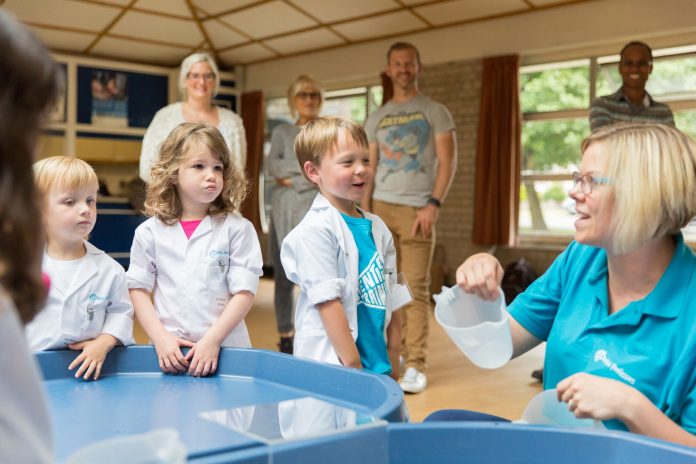In recognition of British Science Week, Emily Whyte, Co-Founder at Mini Professors, highlights the importance of instilling a love of science in the young minds of today
Where do the stars go during the day? How do birds fly? Why is the sky blue? The questions are endless when it comes to science. It’s all around us, from the mobile phone that pings a text message to the alarm clock that wakes us up every day; to the food we buy, the shoes we wear and the medicines we develop to treat infections. Imagining a day, or indeed a world without science just isn’t possible. Importantly today, science also helps us to connect with the planet we live in and also with each other as individuals. It helps us to learn about spatial awareness, observation, problem-solving, patience and also reasoning.
Because science is very much a part of our daily existence, we often take much of what is around us for granted, even though most of what we do begins with science. British Science Week is a great opportunity to highlight the power of science across every aspect of life and to encourage children to ask questions, experiment, take risks and also, to observe the natural world around them.
Curiosity in abundance
Natural curiosity is something that children possess in abundance, which means they learn eagerly and quickly about things that are directly accessible to their senses (whether that is visual, auditory or kinaesthetic). If children are repetitively encouraged to do something independently and hands on, whether that is experimenting by pouring liquids into beakers, threading or measuring substances, their confidence in handling and manipulation will also gradually improve and grow, as will their fine motor skills.
From a teaching perspective, the physical and tactile nature of scientific experiments, combined with an ability to visually and verbally represent a topic, helps to promote understanding and engagement in learning. Creating an experiment is essential experience in science because it drives questions, conversation, processes and outcomes. Conducting fun experiments also offers children the chance to engage with and explore science alongside their peers. This in turn, promotes inclusivity and injects a sense of awe and wonder that is difficult to replicate in other subjects.
We can all relate to the fact that children are excited and amazed by the simplest of things (or at least the things we as adults take for granted). Whether it’s the awe of a magnet picking up a metal spoon, an ice cube melting in a tray or watching objects float and sink in water, such simple things can be absolutely fascinating for them.
Experimenting drives conversation and outcomes
Children love fun experiments because they are so hands-on and hugely sensory as an experience. They can get involved, get their hands dirty and make a mess while learning about new things and exploring the world around them. This kind of science-based play is also ideal with small groups of children in a nursery or preschool environment because it can help to support and develop many social skills too, such as listening, taking turns, sharing, making friends, speaking out and working together with others.
Of course, all children are different and some will love to be in the midst of experimentation, keen to try new things without fear or hesitation. While there are other children who will prefer to stand back and simply observe and absorb what they see. The most important thing is to ensure that all children feel included and encouraged to participate. Children are never too young to learn about science and the more exposure they have to it from a young age, the more familiar they will become with trying new things by the time they start school.
Regular exposure to science is something that all early years educators can support on a daily basis because it is all about giving young children the headspace and the freedom to explore and make their own observations; and also to allow them to succeed with continued praise and encouragement.
Don’t dumb down science to children
Despite our tendency as adults, to shield children from tasks that we feel will be too far out of their comfort zone, even younger children can cope with challenging, but attainable tasks. Science by its nature is often judged by its level of complexity, but when it comes to scientific terms it is very important not to ‘dumb down’ words and phrases because as children hear words and combine experiences, their knowledge and science vocabulary will naturally develop at the right pace.
Making discoveries is also important to children. It is exciting to discover something new, to share that newfound knowledge with peers and to have the courage to make further new discoveries in the future. Learning about science in a fun and interactive way is also great for helping young children to form and shape opinions of their own as opposed to simply taking those of others for granted. These skills start developing from a very young age and science can be a great way to nurture them.
Science also helps children to think about what might happen before they physically do something. It is the early stages of creating a hypothesis in their young minds. Children also learn from a young age that not everything works first time. Sometimes what you think might be the end result isn’t actually the case at all. The great thing about this ‘trial and error’ approach is that children will want to learn where they went wrong, why something didn’t work and how they can fix it or make it right. Science is all about a positive mental attitude and the will to try and try again.











